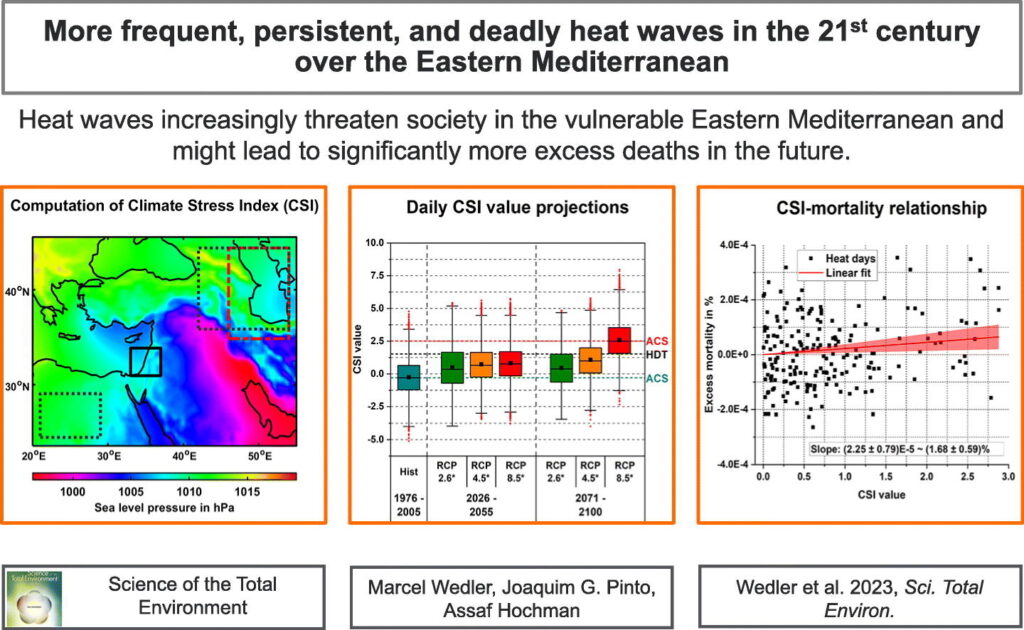Highlights
This new study, published in the journal Science of the Total Environment, was lead by Dr. Assaf Hochman, a senior climatologist at the Institute of Earth Sciences at the Hebrew University (HU) of Jerusalem in collaboration with the Karlsruhe Institute of Technology. The researchers predict an unprecedented increase in duration, frequency and severity of heatwaves here and in the whole eastern Mediterranean. The researchers highlight that the region will experience a sevenfold increase in the number of extreme heat waves by the end of the 21st century and a threefold increase in the duration of these events. With these results, the researchers are urging collaboration between politicians and academics to improve the management and monitoring of catastrophic weather events for public safety.
Graphical Abstract

Abstract
Heat waves are extreme events characterized by sweltering weather over an extended period. Skillful projections of heat waves and their impacts on human mortality can help develop appropriate adaptation strategies. Here, we provide nuanced projections of heat wave characteristics and their effect on human mortality over the Eastern Mediterranean based on ERA5 reanalysis and CORDEX ensemble simulations. Heat waves were identified according to the 90th percentile threshold of the Climatic Stress Index (CSI), specifically tailored for the summer conditions in this region.
We provide evidence that heat waves in the region are projected to occur seven times more often and last three times longer by the end of the 21st century (RCP8.5). We find that heat waves will become more persistent in a warmer world. Finally, we offer a conservative estimate of excess mortality in Israel based on a simple linear model. The projected changes in heat stress intensity and frequency may result in ~330 excess deaths per summer at the end of the 21st century (RCP8.5) compared to the historical baseline of ~30 heat-related deaths, particularly pronounced in the elderly (65+ years).
We conclude that heat waves increasingly threaten society in the vulnerable Eastern Mediterranean. We also emphasize that true interdisciplinary regional collaborations are required to achieve adequate public health adaptation to extreme weather events in a changing climate.
Wedler, M., Pinto, J. G., & Hochman, A. (2023). More frequent, persistent, and deadly heat waves in the 21st century over the Eastern Mediterranean. Science of The Total Environment, 870, doi.org/10.1016/j.scitotenv.2023.161883
